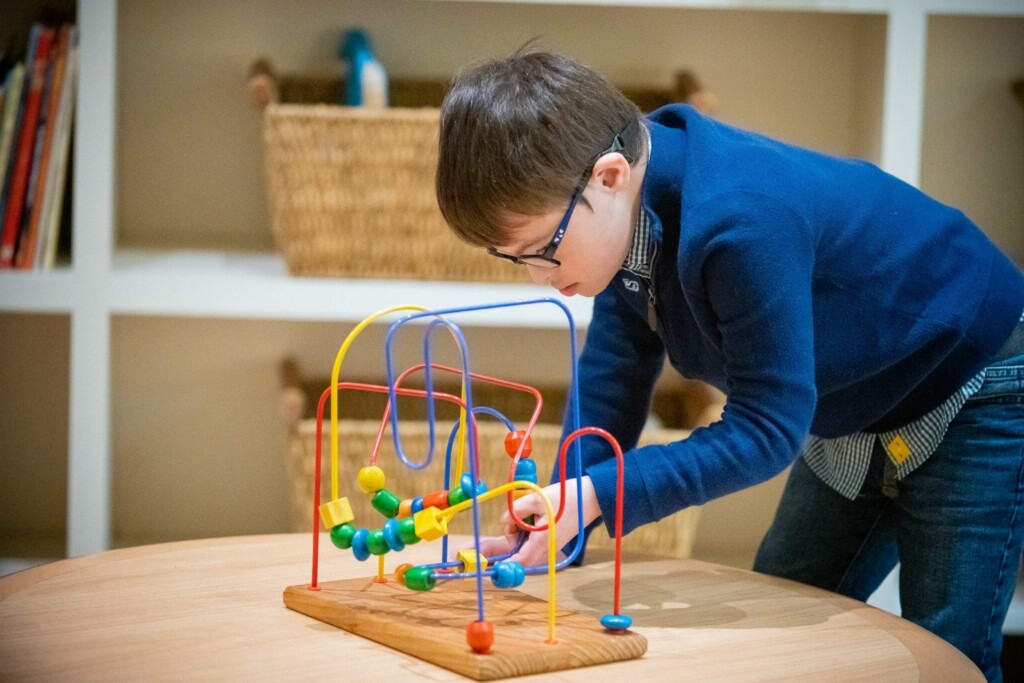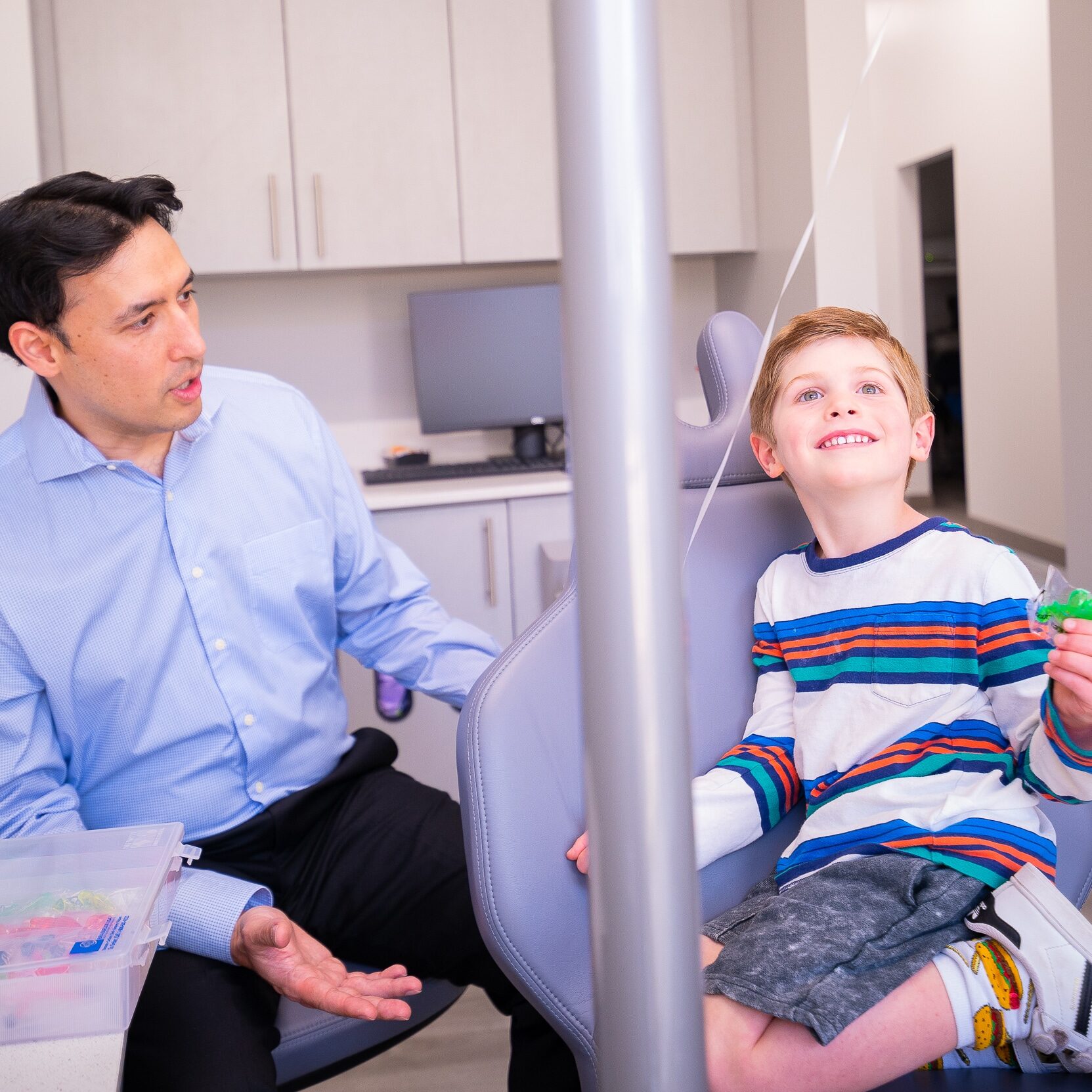One of the most exciting times for parents is watching for their child’s first tooth. Soon, one adorable baby tooth turns into several, and before you know it…they’re falling out again. Why is that, exactly? What is the purpose of baby teeth if they’re just going to fall out?
The importance of baby teeth is often overlooked. After all, your child will only have their first set of teeth for a few years before they begin losing them.
But the milk teeth or primary teeth, as they’re also called, are vital to your child’s oral and overall health. That makes caring for baby teeth just as important as caring for permanent teeth.
Baby teeth are your first teeth, smaller versions of the ones you will eventually get permanently. While you have 32 adult teeth, there are only 20 baby teeth. The premolars and third molars are missing. You just can’t fit all those teeth into those tiny jaws!
When do baby teeth erupt? Your child should get their first tooth around six months of age. Usually, a lower incisor (front tooth) is the first to erupt. Once the lower front incisors are in, the upper front incisors will make their debuts. Then, the other teeth come in between six months and six years of age.
As your baby’s milk teeth are coming in, their permanent teeth are developing in the jaws. By the time all the baby teeth are in, the first permanent tooth is ready to erupt. So your child should lose their first tooth by about age 6, and their permanent tooth should come in not long after its primary counterpart falls out.

Do baby teeth matter? Baby teeth and permanent teeth have equally important roles in your child’s oral and overall health.
Baby teeth guide permanent teeth into place and serve as placeholders until the permanent teeth are ready to erupt. If the baby tooth is lost too early, your child could end up needing braces treatment later.
Though they’re smaller than the permanent teeth, they provide enough space for the permanent tooth to erupt — as long as that space isn’t compromised.
Often, permanent teeth come in crooked because the baby tooth fell out too early, leaving a space that the other teeth can move into if the permanent tooth takes too long to come in. That’s why caring for baby teeth is so important.
Additionally, there are rare occasions when a baby tooth does not fall out when it should. This could lead to the permanent tooth coming in either in front of or behind the baby tooth, and it may be out of place in relation to the other teeth. In such instances, baby tooth extraction may be necessary to help the permanent tooth erupt into its proper position.
Baby teeth help your child learn how to bite, tear, and chew food properly. Your child moves from milk to solid food as the teeth erupt, and different teeth have different purposes. The incisors are made to bite and slice food. The canines are designed to tear food, and the molars grind food to tiny bits so they can be swallowed and digested easily.
The baby teeth teach your child how to use their different types of teeth to eat properly. They learn how to chew their food properly, which ensures better digestion and nutrient absorption. This puts your child on a path to great overall health.
Did you know baby teeth development is directly linked to speech development? Teeth play an important role in speech. Many sounds are formed by the placement of the tongue against the teeth, including th, s, ch, t, l, and n.
Without the baby teeth, your child’s speech development could face problems. Premature loss of baby teeth could cause speech impediments, so visit us if your child loses teeth too early.

What happens if baby teeth are not cared for? Baby teeth cavities risks are just as high as with adult teeth, and the cavities have the same dangers, including pain, infection, and tooth loss.
If you want to know how to protect baby teeth, the answer is the same as adult teeth — proper, regular brushing and flossing, as well as regular dental visits.
Do you know when to see a pediatric dentist? The first dental visit for children should be when the first tooth erupts. The dentist will be able to evaluate if your baby’s other teeth are developing and prepared to erupt properly.
Your child’s dentist will continue to monitor their tooth development with each visit, which is why dental checkups for children are vital. We want to ensure your child has healthy teeth and that they erupt and develop properly. Out-of-place or missing teeth can cause speech or digestive problems.
It’s also important to teach your child to brush and floss regularly and adequately every day. Once your child is old enough to brush their teeth, it’s important to develop a clear routine of brushing at least twice a day for two minutes at a time, as well as flossing once a day.
As your child begins to lose their baby teeth, we will monitor the eruption of the permanent teeth. We also recommend that your child consult with an orthodontist by the age of 7. By then, we will be able to evaluate whether your child may be developing orthodontic issues.
Woodhill Dental Specialties offers both pediatric dentistry and orthodontics under one roof. You won’t have to go looking for an orthodontist elsewhere. Our team of pediatric dentists and orthodontists is able to take care of all your child’s dental needs!
Baby teeth are a vital part of your child’s development, affecting everything from speech to nutrition. Your child’s baby teeth need to be strong and healthy for proper oral development, and Woodhill Dental Specialties can help with that.
If you’re looking for pediatric dentistry and orthodontics in Dallas, TX, or Rockwall, TX, Woodhill Dental Specialties can offer both. Start a virtual consultation with us once your child’s first tooth erupts. We will help your child develop a healthy, beautiful smile!